There are growing hopes that the meeting between Azerbaijan and Armenia on April 6, mediated by the President of the European Council (EU) Charles Michel, will yield results. This is confirmed by the news about the outcome of the meeting.
We'd like to draw attention to some points regarding the recent meeting between the President of Azerbaijan Ilham Aliyev and the Prime Minister of Armenia Nikol Pashinyan. The agenda of the Brussels peace meeting is a part of President Ilham Aliyev's proposals for the post-conflict period. The first trilateral meeting was held on February 14, 2021. As a result, President Ilham Aliyev and Charles Michel laid the foundation for the Brussels peace agenda. During the past period, the parties had intensive contact and telephone conversations.
On March 14, President of the European Council Charles Michel called President of the Republic of Azerbaijan Ilham Aliyev. During the conversation, they discussed the post-conflict period in the South Caucasus, the process of contact and normalization between Armenia and Azerbaijan, as well as the opening of communications and delimitation of borders. These issues were also discussed in a tripartite format. Talking about the results of the meeting held in Brussels on April 6, Charles Michel spoke about the successful discussion of these issues: "We had a wonderful and very productive meeting with President Ilham Aliyev and Prime Minister Nikol Pashinyan. Stability, security, and development in the South Caucasus are important for the European Union. The work is underway to support all positive efforts and trust-building measures. Great progress has been achieved, which means that all parties decided to launch a concrete process of peace talks, prepare a possible peace agreement and resolve all necessary elements for this agreement." As a result of the meeting, an agreement was reached to start negotiations on a peace agreement between Armenia and Azerbaijan. The foreign ministers of both countries have been instructed to do so. One of the main issues is the definition of state borders between Azerbaijan and Armenia. Speaking to reporters after the trilateral meeting, Charles Michel said that the parties agreed to establish a working group on delimitation, a joint commission on sensitive issues: "I am confident that there will be strong communication and coordination between us to review the progress that will be made in the coming weeks.""
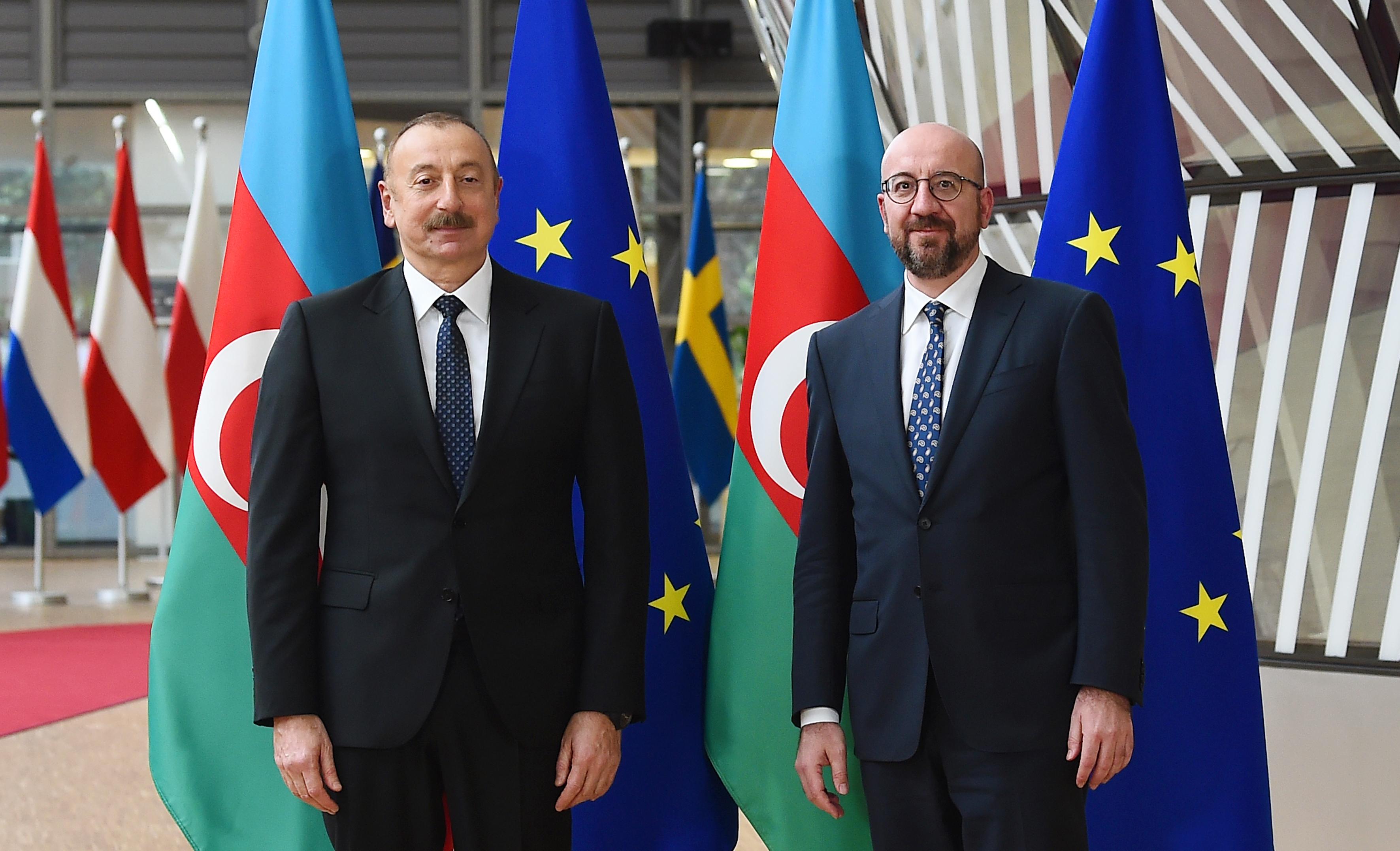
Negotiations are being held based on a five-point proposal put forward by Azerbaijan. The main point in this document is the territorial integrity of Azerbaijan. The proposals submitted by official Baku to Yerevan are as follows:
Mutual recognition of each other's sovereignty, territorial integrity, inviolability of international borders and political independence;
Mutual confirmation of the absence of territorial claims of States against each other and the legal undertaking that no such claim will be made in the future;
To refrain from threatening each other's security in interstate relations, from using threats and force against political independence and territorial integrity, as well as from other circumstances incompatible with the purposes of the UN Charter;
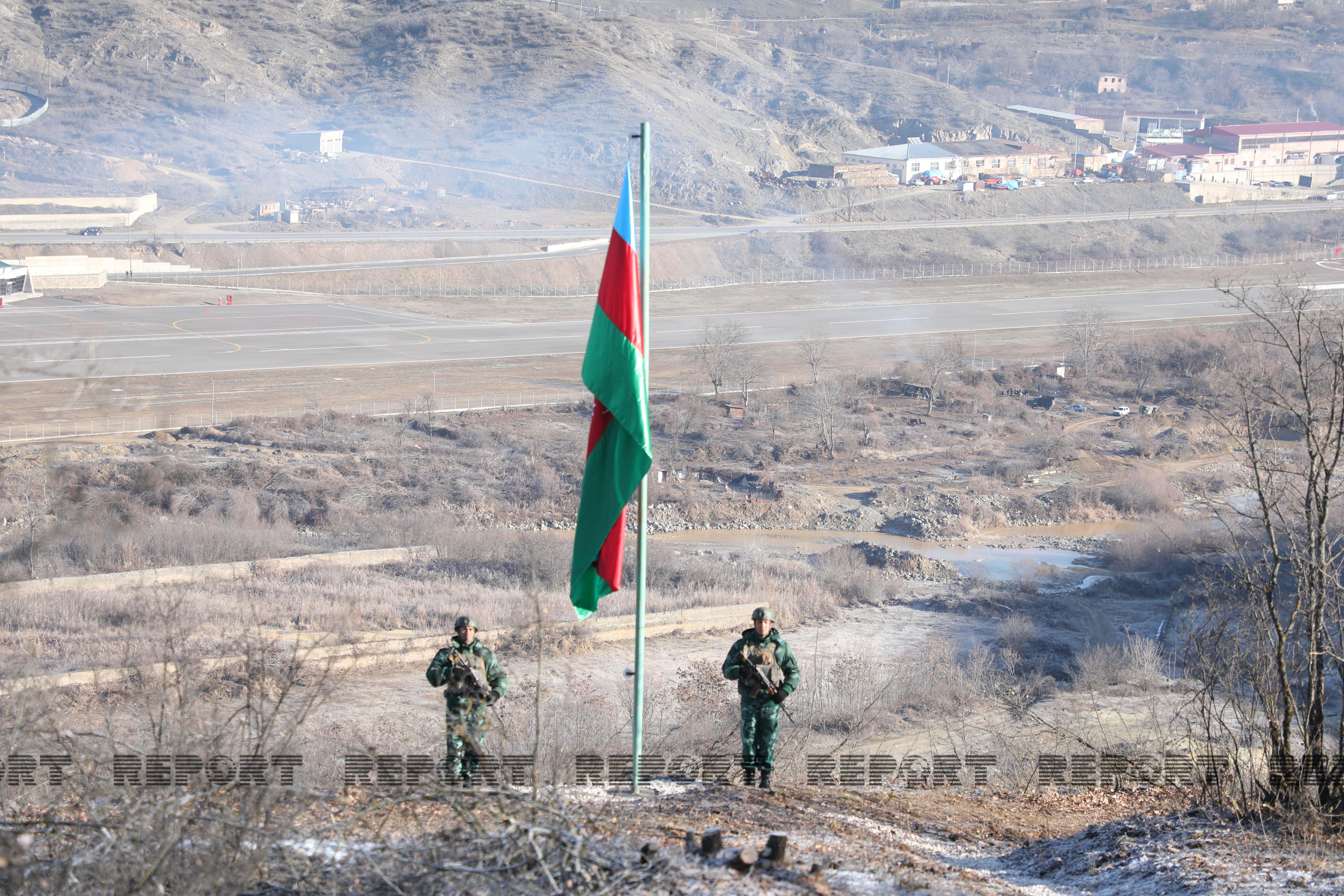
Delimitation and demarcation of the state border, the establishment of diplomatic relations;
Opening of transport and communications, the establishment of other relevant communications, and cooperation in other areas of mutual interest.
This meeting also serves to reduce and eliminate tensions between the parties. The establishment of a European Union-mediated border demarcation commission could reduce border tensions. This will build trust between the parties.
Instead of taking practical steps such as clearing Azerbaijan's liberated territories of mines after the end of the conflict and finding missing people, the Armenian side puts forward various excuses. However, it was confirmed that the European Union would support Azerbaijan in overcoming the problems discussed at the meeting, as well as in constructive work in the region. One of the issues that Armenia first agreed to and then did not take practical steps on is the opening of transport and communication lines. At the April 6 meeting, an agreement was reached on the restoration and establishment of transport and communication lines, the construction of railways and highways, and an economic advisory council mechanism.
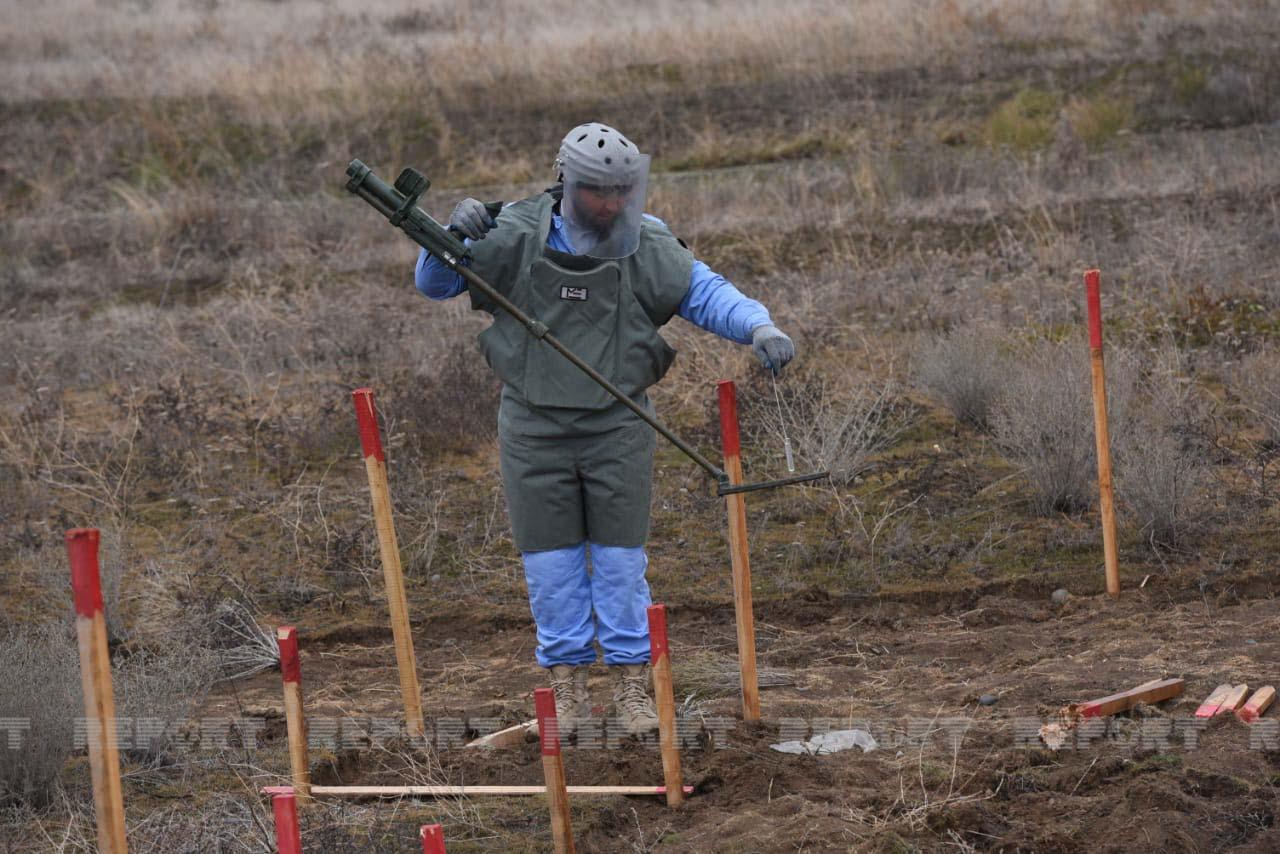
This meeting is dedicated to the establishment of relations between the two countries. At such meetings, official Yerevan, as a rule, prevented any agreement between the parties by raising the issue of the former and fictitious Nagorno-Karabakh. It was the main problem of contact and trust between the parties. As a result of the 44-day war, the so-called conflict and so-called fictional issues were successfully resolved. The issue of Azerbaijan's territory is no longer on the agenda of international mediators, as well as Armenian officials. The fact that the final document of the last trilateral meeting did not mention Nagorno-Karabakh or the insignificant institution of co-chairing the OSCE Minsk Group, which was sent to the archives of history, confirms that the territorial integrity and sovereignty of Azerbaijan are not discussed at the international level.
The meeting gives reason to believe that some rapprochement has happened between the parties. Charles Michel said: "The process of lasting agreement between Azerbaijan and Armenia has begun." However, no opinion was expressed on the duration of the agreements reached between the parties. Seemingly, in this matter, there is a need for the consent of Azerbaijan and Armenia, as well as an international mediator, a party or parties other than the European Union. It can be considered that Russia still plays a key role in the issue of trust between Azerbaijan and Armenia and many matters before the preparation and signing of the peace agreement. Its role as a mediator in conflict and post-conflict issues may decrease in the long run.
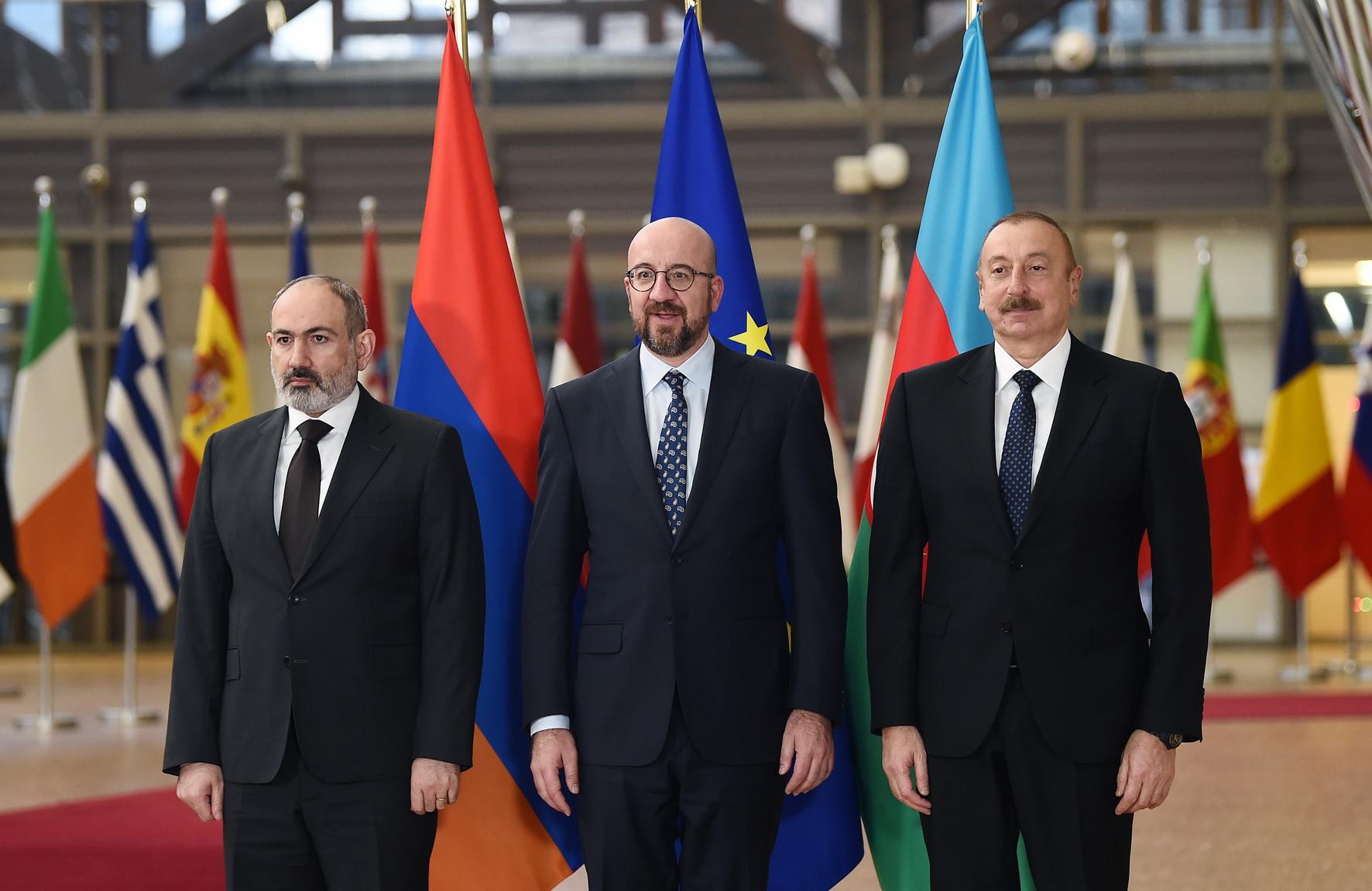
By the way, the events in Ukraine will give impetus to the solution of many issues in international relations, including the problems we have discussed. Despite all the mysteries and difficulties, such development leads to the emergence of a new mechanism and format for direct talks between Azerbaijan and Armenia. This may result in the normalization of relations between the two countries. Charles Michel confirmed it: "The process began tonight."
This means that a new player in the role of mediator between Azerbaijan and Armenia is active in the political arena. It is the European Union. There is a lot of confidence in the EU, as official Baku and Yerevan aim to integrate into this organization in the future or try to expand cooperation with it. In addition, President Ilham Aliyev's personal dialogue and contacts with EU officials are essential in building such trust.
Thus, Azerbaijan and Armenia have an intention to normalize relations. The international mediator has also changed in this matter. The process of increasing the activity of the European Union, which was previously in a passive position, has begun. This raises hopes that it will be successful ...


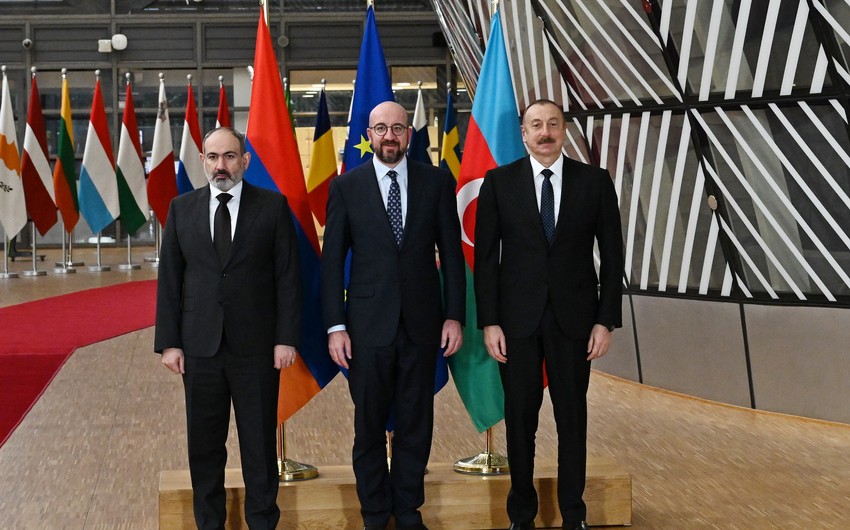 https://static.report.az/photo/7fdb26f7-e7be-3b2d-bd9c-9543f7c6f557.jpg
https://static.report.az/photo/7fdb26f7-e7be-3b2d-bd9c-9543f7c6f557.jpg

